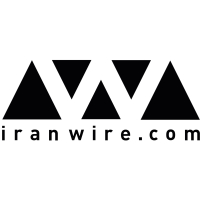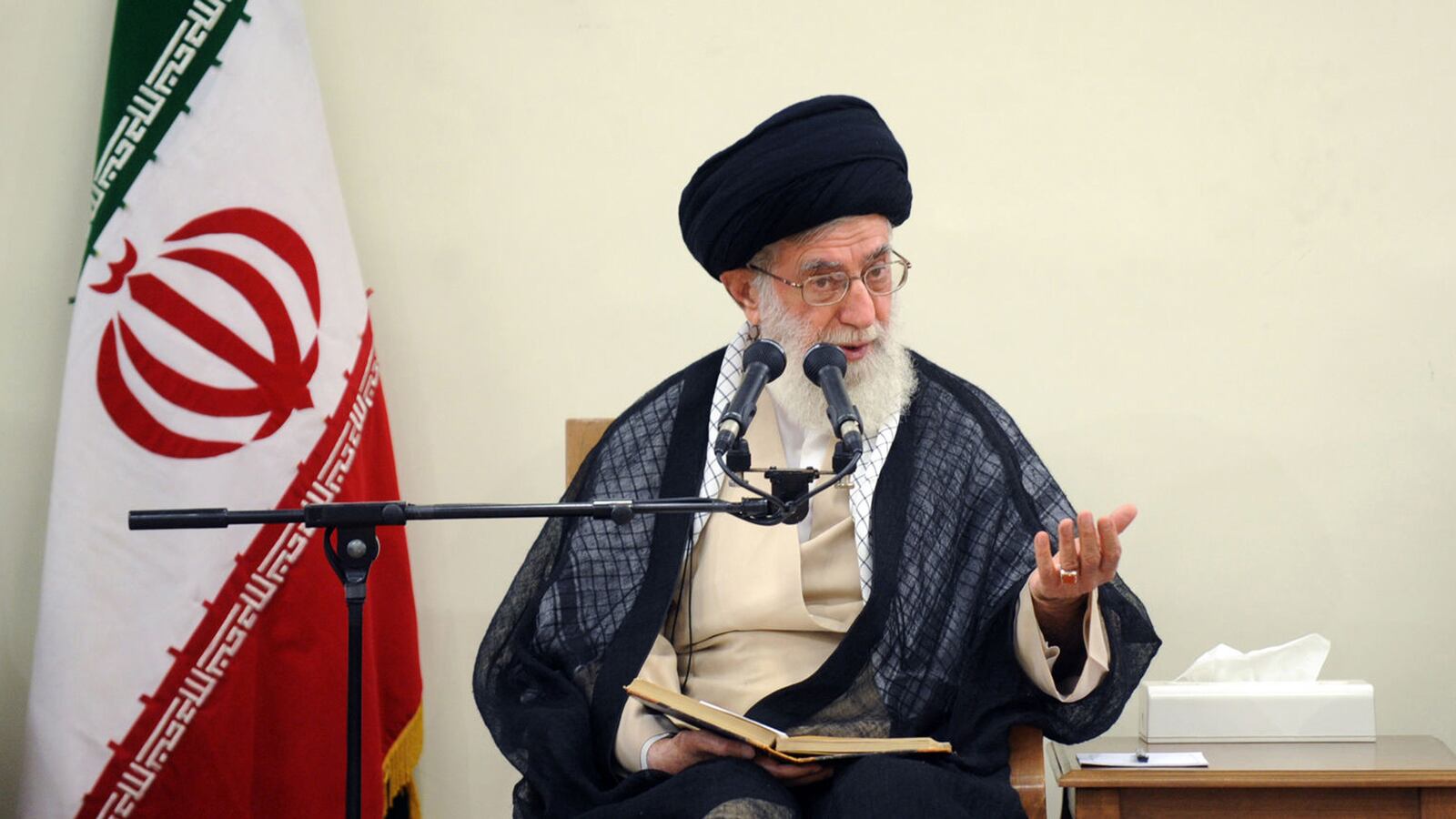In a speech to diplomats from around the world, Iran’s Supreme Leader Ayatollah Ali Khamenei said Wednesday that he firmly believes further negotiations with the United States should not go ahead. Iran is willing to cooperate with any country in the world, he said, “with two exceptions: the Zionist regime and the U.S.”
Although Khamenei did not go so far as to forbid the Iranian delegation from continuing the extended negotiations with the United States ove Iran’s nuclear program and the sanctions imposed to curtail it, he warned against the dangers of engaging with the U.S. on all other international matters. The remarks directly undermine the broader position of Iranian President Hassan Rouhani.
Khamenei said that negotiations with America had been “useless.” Contrary to assertions that talks had opened Iran up to the world, making it a more significant player on the international stage, Khamenei said that over the past year U.S. leaders had become increasingly hostile, insulting Iran with their “exuberant demands,” “extending sanctions,” and spreading propaganda that portrayed Iran as a country that “vacillated” and couldn’t make up its mind up.
The message was a firm one for the West, but it also let Iran’s influential hardliner politicians and clergy know that Khamenei had not forgotten their position.
President Rouhani, of course, has led the call for increased engagement with the U.S. and the West. He and Foreign Minister Javad Zarif have worked hard to deliver a message of hope around negotiations, ensuring the public are made aware of just how important they are to the future of Iran’s economy, as well as to its standing on the international stage. Zarif was photographed looking glum in the meeting with diplomats at the leader’s compound in central Tehran. The foreign minister’s familiar smile was nowhere to be seen on any of the Iranian websites covering the event.
In sharp contrast with Khamenei’s address Wednesday, Rouhani has talked about the promising future if sanctions are eased, the practicalities of working with the U.S. to combat Islamic State insurgents in Iraq, and the greater opportunities to tackle world issues. It’s not only the nuclear program that the world needs to talk about, Rouhani’s camp suggests. Last year’s historic phone call between Rouhani and U.S. president Barack Obama was a symbol Western media—and Rouhani—gladly embraced. Rouhani has even sought out public opinion within Iran. Earlier this year he commissioned a poll to identify just what the ordinary Iranian public thought about increased contact with the West. Perhaps tellingly (because many Iranians are thought to favor an opening) the poll never happened.
At the same time, the administration has been keen to show itself as tough, practical and resolute. Javad Zarif has said one of the most important outcomes of talks has been an American shift: U.S. officials now have a clearer understanding of what they can expect from Iran. According to Zarif, he and chief negotiator Abbas Araghchi have ensured that no new sanctions have been imposed over the last year—a view dismissed today by Khamenei in front of the world’s diplomats. “They say these sanctions aren’t new, but actually they are,” Khamenei said, which proved, he suggested, that talks over sanctions have led to nothing.
Despite his sharply worded pessimism about talks with the United States, Khamenei said he sees an opportunity posed by shifting global politics, where “new players” are beginning to challenge traditional superpowers. In that respect, he said, it is time for Iran to display a “heroic flexibility.”
Khamenei’s speech is a direct attack against America’s arrogance and what he perceives as its unwillingness to acknowledge the key role he, the Supreme Leader, plays in how Iran positions itself in terms of international engagement. July’s Vienna meetings resulted in a four-month extension of nuclear talks between Iran and the five permanent members of the U.N. Security Council plus Germany, and, as this next leg gets underway, Khamenei seems to be telling the West that, although he is a patient man, he cannot be expected to sit back and not protect his interests, or the interests of his supporters.
Khamenei’s attack on the Rouhani administration,will put a smile on the faces of the country’s hard liners, giving them something to hold over the heads of negotiators, who no doubt face a long road ahead. On Tuesday, Speaker of the Parliament Ali Larijani told Foreign Minister Zarif and key ambassadors that if Iran failed in its negotiations regarding the nuclear program, cooperation with other states, particularly in the West, would be badly undermined.
Khamenei’s threat to completely shut out the U.S. could be interpreted as gamesmanship, as bad cop, good cop. But the stakes are huge. Will the U.S. demonstrate a reasonable amount of flexibility to satisfy him when it comes to the nuclear program? And will Iranian diplomats play their parts to make this happen? He was challenging them. If they do, extensive economic and political opportunities may open up. If not, the world will be back where it started. But the nuclear question, as he sees it, is the only question worth talking to the Americans about.
This article is adapted from one by Reza Haghighat Nejad that appeared originally on IranWire.






